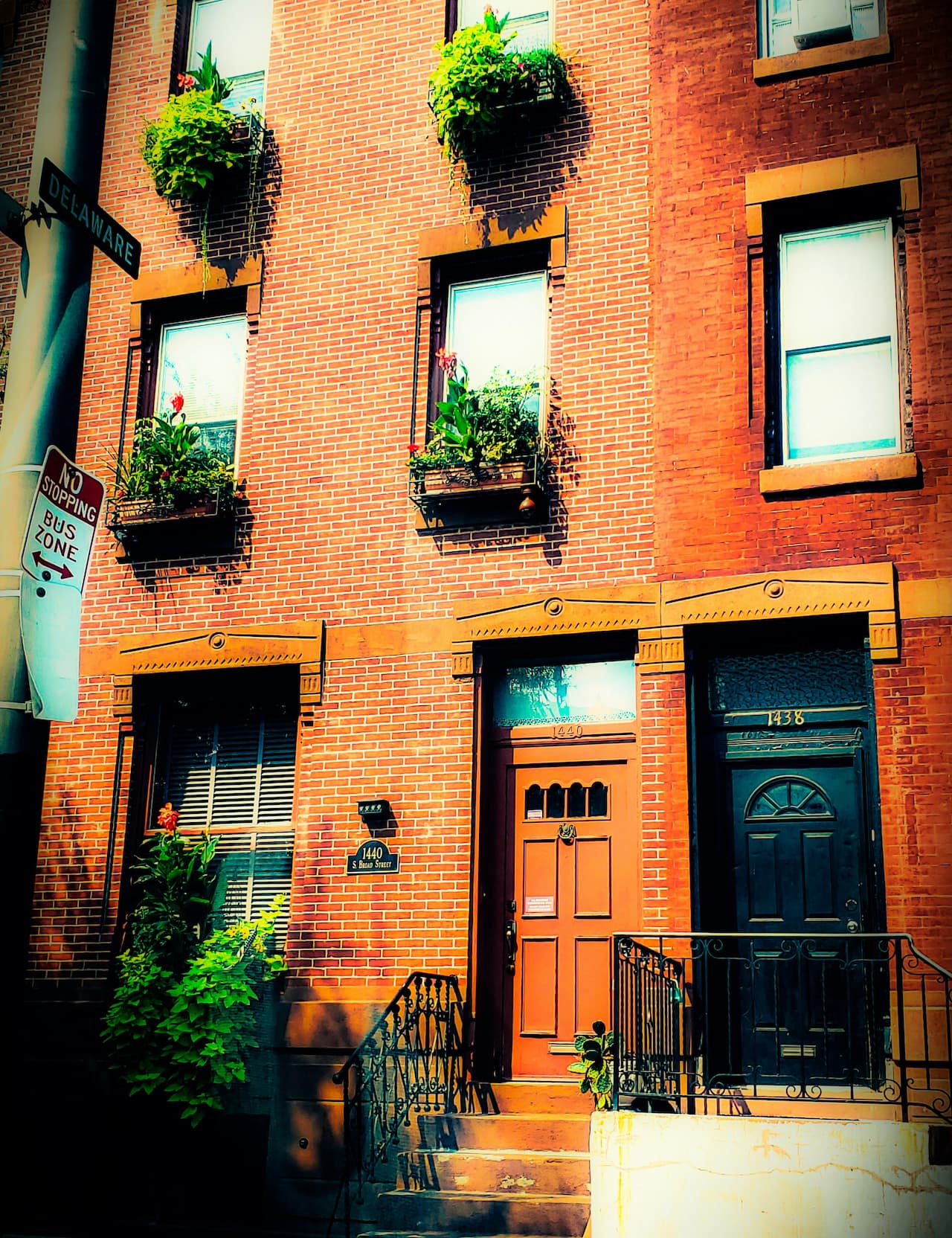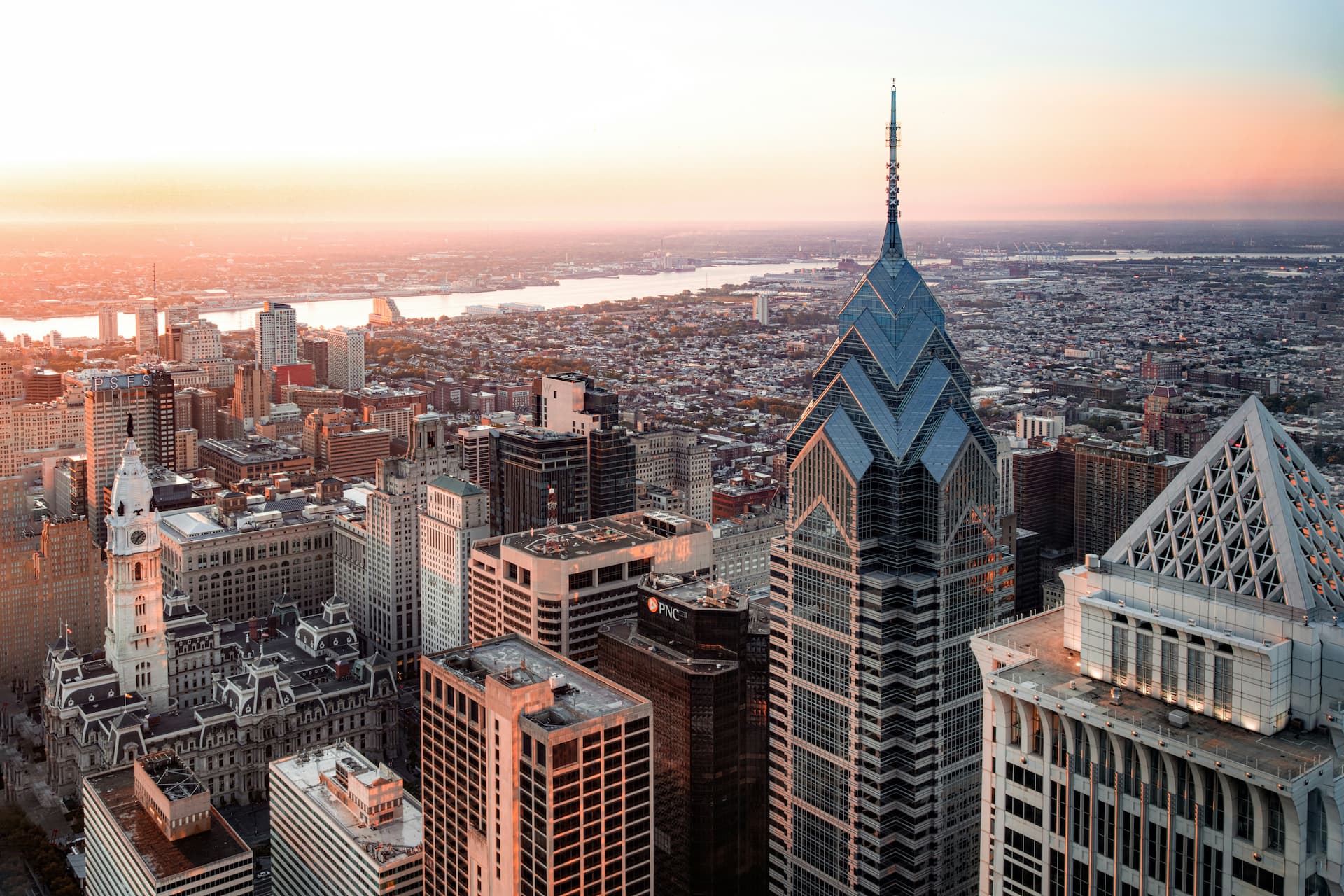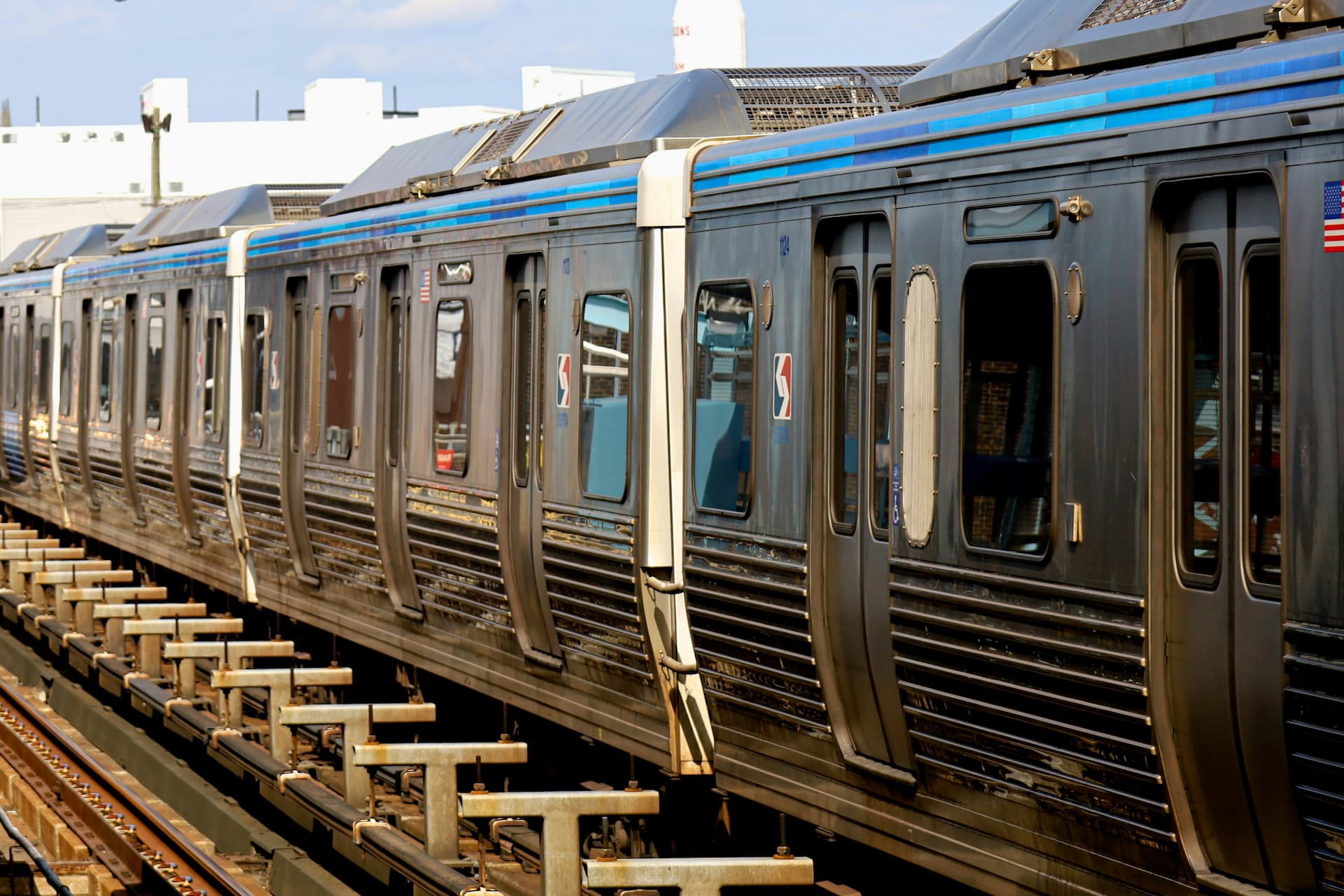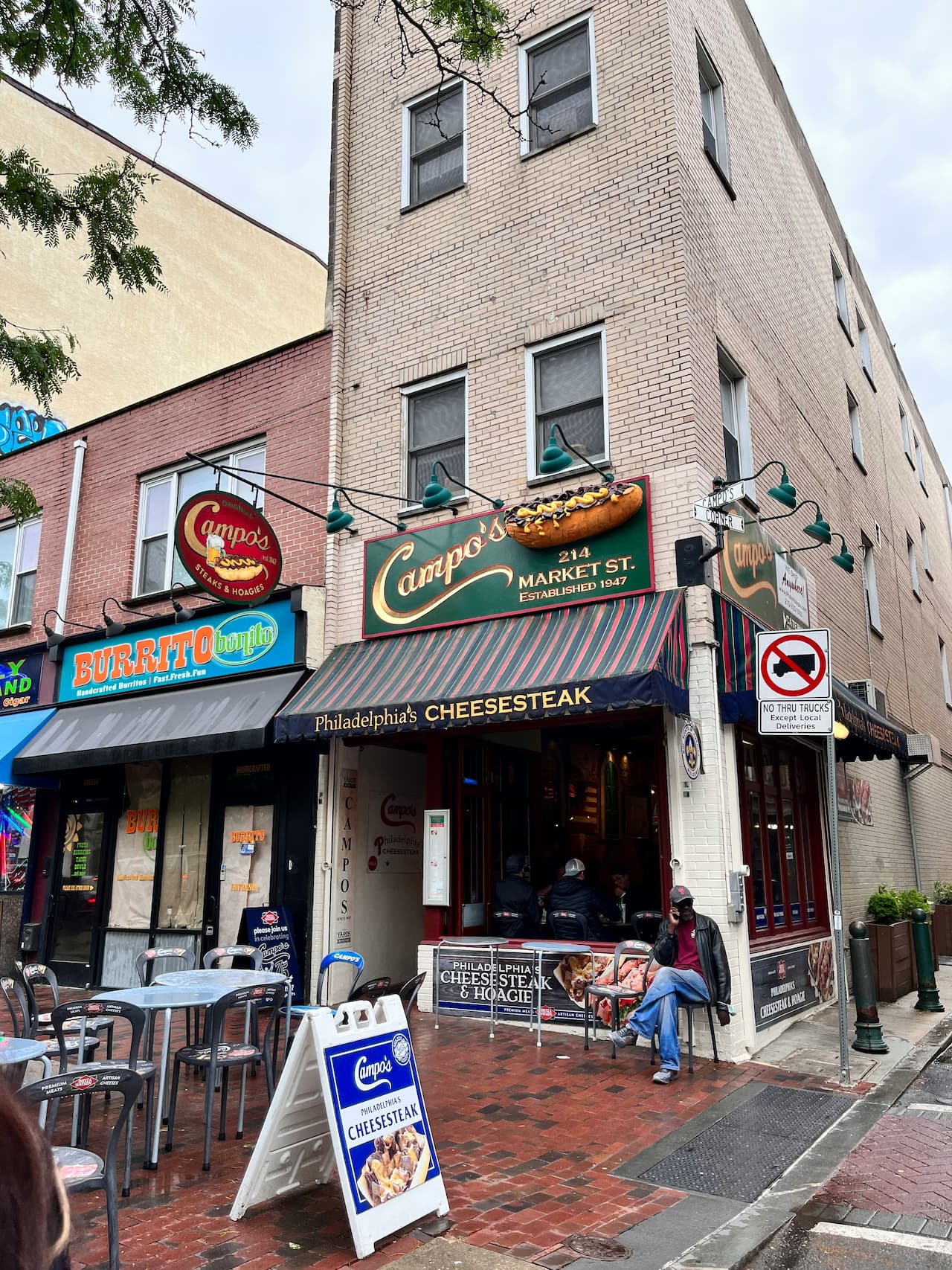Updated: January 25, 2026
Table of Contents
Philadelphia is an interesting city with a rich history and a vibrant cultural scene. It has it all: big-city atmosphere and small-town coziness. But is it worth moving here?
In this guide, we will tell you in simple terms about the important aspects of life in Philadelphia. For example, you will learn how much cheaper it is to live here than in New York or Washington. We'll tell you which jobs are in demand and what kind of salary you can expect. You’ll get a sense of which neighborhoods are right for you - in terms of living standards and budget. We'll discuss the safety of the city and answer the question of whether you can get by without a car.
Cost of Living in Philadelphia

Housing: Buying and Renting
Philadelphia is considered one of the most affordable major cities on the East Coast of the United States in terms of real estate, especially when compared to New York City or Boston. According to Zillow, by the end of 2025, the average home price in the city will range from $225,000 to $230,000, showing moderate growth compared to the previous year.
In central and prestigious areas such as Rittenhouse Square, housing prices often exceed $550,000–$600,000. At the same time, in South Philadelphia and the suburbs, it is still possible to find homes priced at $250,000–$300,000. Thanks to this price level, the city remains attractive to families, young professionals, and first-time buyers alike.
Rental Market
Rental costs in Philadelphia are also significantly lower than in most metropolitan areas in the region. According to Zillow, the average rent is approximately:
Despite a gradual increase in rents, renting in Philadelphia is still more affordable than in New York or Boston.
If you plan to live in the city for 3 to 5 years or longer, buying real estate may be a more rational decision due to affordable prices and a relatively stable market.
Daily Expenses
Daily expenses in Philadelphia are below average for large cities on the East Coast. Utilities cost approximately $300–$350 per month. Food expenses for one person are about $350 per month.
The city's transportation system is well developed, so many residents prefer public transportation. SEPTA passes are significantly cheaper than owning a car, and the average price of gasoline in the region remains at around $3 per gallon.
Medical services in Philadelphia are also relatively inexpensive, due to the large number of hospitals, clinics, and medical centers.
Required Income
An annual income of about $50,000 is sufficient for a comfortable standard of living for one person in Philadelphia. A family with two children will need approximately $80,000–$85,000 per year to feel financially stable and without serious restrictions.
Philadelphia Labor Market
The Philadelphia labor market is characterized by stability. According to the Federal Reserve Bank of St. Louis, the city's unemployment rate is around 4.8%, which is in line with the US average.
Healthcare, education, and professional services play a key role in the city's economy. Large universities and medical centers account for a significant portion of jobs, while demand in the business services and consulting segment is growing.
The technology sector deserves special attention, as it offers good prospects for IT specialists. According to Glassdoor, the average income for developers in Philadelphia ranges from $70,000 to $120,000 per year. According to Gusto, the median salary across all professions is approximately $64,000.
The city offers a favorable balance between income levels and living expenses. Salaries here are above the national average, while the cost of living is lower than in most major cities on the East Coast. An additional advantage is the developed infrastructure for remote and hybrid employment: Philadelphia has many coworking and workspaces where you can not only work but also expand your professional network.
Neighborhoods to Live in

Philadelphia has many different neighborhoods, each suited to a certain lifestyle. To make it easier for you to choose the right place to live, here are some of them in simple terms.
The Chestnut Hill neighborhood is great for families. It is often referred to as the “garden neighborhood” because it is full of greenery, parks, and historic homes. The schools are considered some of the best in the city. It's quiet and cozy, but it's also close to stores and cafes. Another family-friendly neighborhood is Queen Village. This is an older neighborhood with a friendly atmosphere, good schools and playgrounds for kids. It's easy to socialize with neighbors and participate in local festivals.
Younger people prefer to settle in Fishtown or Northern Liberties. Fishtown has long since shed its fame as a fisherman's neighborhood and has become a popular place with nice bars, clubs, and restaurants. There's also plenty of coworking spaces, and downtown is within walking distance. In recent years, housing prices in Fishtown have increased significantly as the area continues to attract young professionals. In NoLibs, young people immerse themselves in an active nightlife, during the day the area has cozy small cafes and stores to offer. Northern Liberties is now considered one of the more expensive neighborhoods popular with young residents, and it also has good public transportation.
If you want to save money, the South Philadelphia or Brewerytown neighborhoods can be good options. Whitman, for example, as part of South Philadelphia, offers a combination of relatively affordable housing, walkability, and easy access to Center City, along with leisure activities such as cafes and cultural events. Brewerytown used to be known for breweries, but now attracts residents with affordable apartments and homes. There are many new buildings and renovated older homes, although comfort and safety can vary depending on the specific block, which is important to keep in mind.
It's important to remember that some popular neighborhoods, such as Fishtown and Northern Liberties, are rapidly developing and housing prices are rising. As a result, these areas are no longer considered budget-friendly, and rising costs can sometimes lead to locals moving to more affordable neighborhoods.
As far as safety is concerned, the situation in Philadelphia is improving overall. Over the past few years, the rate of serious crime has declined, including a noticeable decrease in homicides compared to earlier periods. However, safety still differs from neighborhood to neighborhood. Before choosing a place to live, it's worth visiting the neighborhood in person at different times of the day to get a sense of how comfortable and safe it is.
Transportation

You can live comfortably in Philadelphia without your car. It is convenient to use public transportation, which is represented by buses, subways, trolleys, and suburban trains. Many residents choose public transit or walking as their primary way of getting around the city.
The subway in Philadelphia consists of two main lines: the blue line (Market-Frankford) goes across the city from east to west, and the orange line (Broad Street) connects the northern and southern parts of the city. There is also the PATCO Speedline, which connects Philadelphia to the neighboring state of New Jersey and runs nearly 24 hours a day.
From the 30th Street train station, you can easily travel to New York, Boston or Washington, D.C. by Amtrak train. This makes Philadelphia a convenient base for travel along the East Coast.
It's convenient to use a SEPTA card for travel. A monthly pass (TransPass) for unlimited rides on buses, trolleys and subways costs about $116 per month, making regular public transportation a cost-effective alternative to owning a car.
Philadelphia is also great for bicyclists. The city has a convenient Indego bike rental network, and the number of bike lanes continues to grow, particularly in central neighborhoods.
Another convenience is that in some neighborhoods, such as University City and Center City, you can easily walk to stores, cafes, and restaurants, making these areas especially attractive for residents who prefer a car-free lifestyle.
Culture

Philadelphia is a city with a vibrant cultural scene, diverse restaurants and an active nightlife. There is something for everyone.
Culinary life in Philadelphia will surprise you with a combination of traditional and modern flavors. For example, Kalaya restaurant will take you straight to Thailand, offering authentic Thai dishes. Fans of American cuisine will love the restaurant “Friday Saturday Sunday”, where classic dishes are prepared in a new way. El Chingón restaurant offers authentic Mexican cuisine, while Mawn will delight you with Southeast Asian dishes. If you like Italian cuisine, check out Pietramala. Angelo's is the place to try authentic Philadelphia cheesesteaks and delicious pizza. Mediterranean cuisine lovers will appreciate Dear Daphni restaurant, and cozy Little Walter's is perfect for a quiet dinner.
Philadelphia’s dining scene continues to gain national recognition, and many local restaurants regularly appear on “best of” lists. Also worth a visit is Andiario restaurant in West Chester, which is famous for dishes made of local seasonal products, and Post Haste restaurant, where the menu depends on the season and organic products.
Philadelphia is also famous for its diverse street food scene. There are food trucks all over the city, where you can try both traditional dishes like cheesesteaks and dishes from around the world. Especially popular are street food festivals like the Philly Street Food Fesival, which continues to attract large crowds each year, bringing together the best mobile eateries.
For those who enjoy an active nightlife, Philadelphia offers several neighborhoods with a wide selection of cafes, bars, clubs, and live music venues. Old City is historic and relatively quiet during the day, but in the evening it comes alive with cocktail bars, lounges, and cultural events, especially around Market Street and the waterfront. Popular spots here include Race Street Cafe, National Mechanics, and several waterfront bars that attract both locals and visitors. Center City is known for its rooftop bars, cocktail lounges, and restaurants located close to one another, making it easy to walk between venues and enjoy a full night out without using a car. Well-known places such as Assembly Rooftop Lounge, JG SkyHigh, and The Continental Mid-town are especially popular for evening gatherings and social events.
The Fishtown neighborhood is especially popular with younger residents thanks to its energetic music scene, independent venues, and stylish bars that attract both locals and visitors. Live music venues like The Fillmore Philadelphia and Johnny Brenda’s, along with bars such as Frankford Hall and Suraya Bar, help define the area’s nightlife. South Philadelphia is well known for its live music spots, traditional sports bars, and late-night restaurants, particularly in areas where locals gather to watch games or attend concerts. Popular locations include Xfinity Live! near the stadium district, as well as long-standing neighborhood bars that stay open late on game nights.
Sports also play an important role in Philadelphia’s nightlife and social life. The city is home to passionate fans of the Eagles (NFL), Phillies (MLB), 76ers (NBA), and Flyers (NHL), and game days often turn bars and neighborhoods into lively social hubs. Many sports bars across Center City and South Philadelphia stay open late during major games, creating a unique atmosphere where nightlife, community, and local culture come together.
Philadelphia also hosts many cultural festivals throughout the year. For example, the Mummers Parade is a colorful celebration that takes place every year on New Year's Day, bringing together thousands of people in elaborate costumes. The Picnic Roots music festival, organized by hip-hop group The Roots, attracts music lovers from all over the country. Another well-known event is the Philadelphia Folk Festival, which features both contemporary and traditional folk music. The city also hosts restaurant week twice a year, when restaurants offer special menus at discounted prices, giving residents and visitors the opportunity to explore different cuisines.
Moving to Philadelphia
Moving to Philadelphia can be a pleasant experience if you prepare in advance and know the important details.
Before moving, it's a good idea to make a plan ahead of time so you don't forget anything. You need to change your address and notify your bank, post office, and other important services. Arrange in advance to disconnect utilities in the old place and connect them in the new one. Also, review your belongings, get rid of what you don't need and pack the rest neatly. Label boxes so it's easy to unpack later.
When moving, there can be additional costs that are often forgotten about. For example, not all moving companies in Philadelphia include boxes and packing in the price. Also, sometimes you have to pay extra if the movers have to carry things far or use the stairs. If the new apartment is not ready yet, you may need temporary storage, which will also increase costs. Tips for movers in Philadelphia are not required, but are usually around 10-15% of the moving cost.
Learn more about the cost of movers in Philadelphia in our article!
If you are moving to Philadelphia from another state, remember that you need to register your car in Pennsylvania within 20 days and change your driver's license within 60 days. It's also advisable to register to vote in local elections and familiarize yourself with the city's rules, such as parking or garbage disposal. It is also important to choose a new doctor and transfer medical records if necessary.

